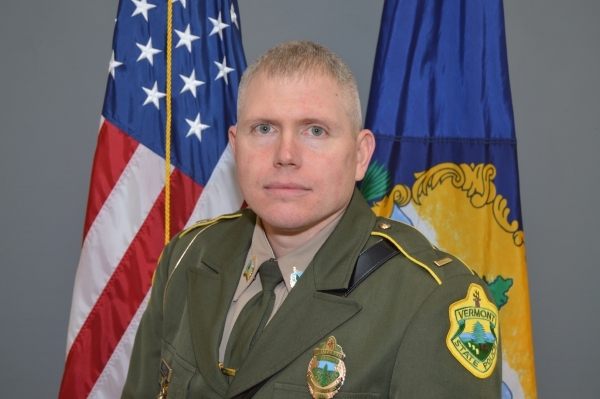WESTMINSTER — As he settles into his new role as commander of the Vermont State Police Westminster station, Lt. Anthony French is not shying away from big law-enforcement topics like opiates and mental health.
But he's also thinking about the nuts and bolts of basic police work at the newly consolidated Windham County barracks.
So the 19-year state police veteran is offering a heads-up for drivers on Interstate 91 in southeastern Vermont: Expect to see more cruisers.
“We've been trying to get a little more presence on the interstate recently,” French said. “We recognize that there hasn't been as much of a presence. We want to make sure that's something we focus on.”
French has taken over in Westminster for Lt. Tim Oliver, who will retire later this month. Oliver is “assisting Lt. French with the transition as he nears his last day,” said state police spokesman Scott Waterman.
Oliver previously had been serving as commander of the state police Rockingham barracks, which last year merged with the Brattleboro barracks. Troopers from both locations moved into a new, $6.7 million, 16,000-square-foot station off I-91 Exit 5 in Westminster.
That consolidated station covers a fairly large area - all of Windham County, plus southern Windsor County and a small piece of Bennington County. But French said the merger process is going well.
“I think, in the past six months, the troopers and the patrol commanders have been able to use that time to gain a pretty good understanding of how to cover the patrol area with the resources that we have,” he said.
French already had a good understanding of much of that coverage area: He spent much of his career at the former Rockingham barracks.
And he's also had management experience. French was promoted to sergeant in 2005, and he spent the latter portion of 2016 as the Royalton station's commander.
“It was actually pretty easy for me to transition down here,” French said. “I had a sense of what I should be doing - the duties of a station commander.”
Asked to name a distinctive feature of the Westminster barracks coverage area, French pointed to I-91. Posting more troopers there, he said, isn't just about writing more tickets.
“When we're out there, slowing people down, that's going to have an impact on crashes, too,” French said.
The interstate also is a portal for illegal drugs flowing into Vermont from the south. Troopers from the Westminster barracks patrol all the way to the Massachusetts border, so French said he hopes a more-visible presence might deter some of that activity - or result in more arrests.
At the same time, French said a drug bust shouldn't be the only tool available to troopers. He wants to see state police build a stronger relationship with the communities they cover, possibly through attending events or meetings or being more visible in area schools.
“We need to use a broader, collaborative effort - using a community approach along with state resources, so everybody's involved to help target the problem,” French said.
That problem, he added, has become increasingly clear through a “steady rise” in opiate-related issues. It stretches beyond overdoses and drug possession cases.
“A lot of the property crime that we're seeing is related to opiate addiction. People are looking for money to support their habit,” French said.
Another persistent issue for police in Vermont - responding to mental health crises - has French's attention. He said he's looking for ways to “better address mental health calls for service.”
One idea is to bring in more expertise. French said he had preliminary conversations with Health Care & Rehabilitation Services of Vermont about possibly posting a staffer at the Westminster barracks.
“That way, there would be somebody in-house who could help address not just mental health problems but opiate issues as well,” French said. “Unfortunately there wasn't funding for that right now, but we're still exploring different avenues and hopefully that's something in the future we can work towards.”
French is looking toward the future on one other matter - finding more troopers. He believes the local barracks can serve as a recruiting tool.
“We find that word of mouth is usually the best way for us to find new people - somebody who knows somebody else and recommends that they apply,” French said. “They can always contact us and come in and see how we do things, go for a ride-along. We can show them how we do business and what they could expect as a state trooper.”
